While all sections are crucial for a comprehensive evaluation of your English proficiency, IELTS Speaking is often the one that test takers overlook. In this blog post, we’ll explore why IELTS Speaking deserves more attention and provide tips to help you excel in this section.
IELTS Speaking – Overview
This is a recap of the structure of IELTS Speaking. It is divided into 3 parts:
- Introduction and Interview – In this section, the examiner will introduce themselves and ask you to introduce yourself. – You will answer a series of general questions about familiar topics, such as your home, family, work, studies, and hobbies.
- Long Turn – You will receive a task card with a topic, a set of prompts, and one minute to prepare. – You will then speak for 1-2 minutes on the topic, addressing the prompts.
- Discussion – The examiner will engage you in a more in-depth discussion related to the topic in Part 2. – This section assesses your ability to express and justify opinions and ideas.
Why IELTS Speaking may matter more than you think
Many test takers underestimate the significance of the IELTS Speaking section, focusing more on the Reading and Writing components. It may be natural to do so since most of us think that we are naturally good at conversations. However, here are some compelling reasons why you should pay more attention to IELTS Speaking:
- Real-Life Communication Skills: IELTS Speaking mirrors real-life conversations and interactions. The ability to communicate effectively in English is crucial for success in both academic and professional settings.
- Overall Band Score: Your performance in IELTS Speaking contributes significantly to your overall band score. Neglecting this section can potentially lower your overall score, limiting your opportunities.
Tips for IELTS Speaking Success
Practice9 is full of tips, but for those who don’t have a lot of time (although you should put in the time to prepare for IELTS), here are some key tips:
- Practice, practice, practice: Consistent practice is key to improving your speaking skills. Engage in conversations with native speakers or fellow test takers, and record your responses to assess your progress. Take free IELTS Speaking Practice Tests here.
- Manage your time: In Part 2, where you have to speak for 1-2 minutes, practice managing your time effectively. Make sure your response is coherent and well-structured within the given timeframe.
- Expand Your Vocabulary: A rich vocabulary enhances your ability to express ideas clearly. Make an effort to learn new words and phrases and use them in your responses.
- Familiarize Yourself with Common Topics: IELTS Speaking questions often revolve around common topics like family, work, and hobbies. Prepare answers for these topics in advance so you can respond confidently during the test.
- Self-Assess: Critically evaluate your speaking performance. Identify areas where you can improve, such as pronunciation, fluency, or grammatical accuracy. Record your answers and listen to them to identify the mistakes you make. The best way to get assessments is to have someone who is experienced with IELTS and the English language give you feedback. You can book a consulting session with us for a critical evaluation here.
- Simulated Tests: Take advantage of IELTS practice tests on Practice9 that mimic the actual exam format. For a more exam-like experience, book a VIP 1-1 Speaking Evaluation Session with us.
This will help you become comfortable with the test structure and build confidence.
In conclusion, the IELTS Speaking section is a vital component of the IELTS exam that test takers should not underestimate. It assesses your real-life communication skills, significantly impacts your overall band score, and requires diligent preparation. By practicing regularly, managing your time effectively, expanding your vocabulary, and familiarizing yourself with common topics, you can increase your chances of success in this critical section. So, give IELTS Speaking the attention it deserves, and you’ll be well on your way to achieving your desired band score.


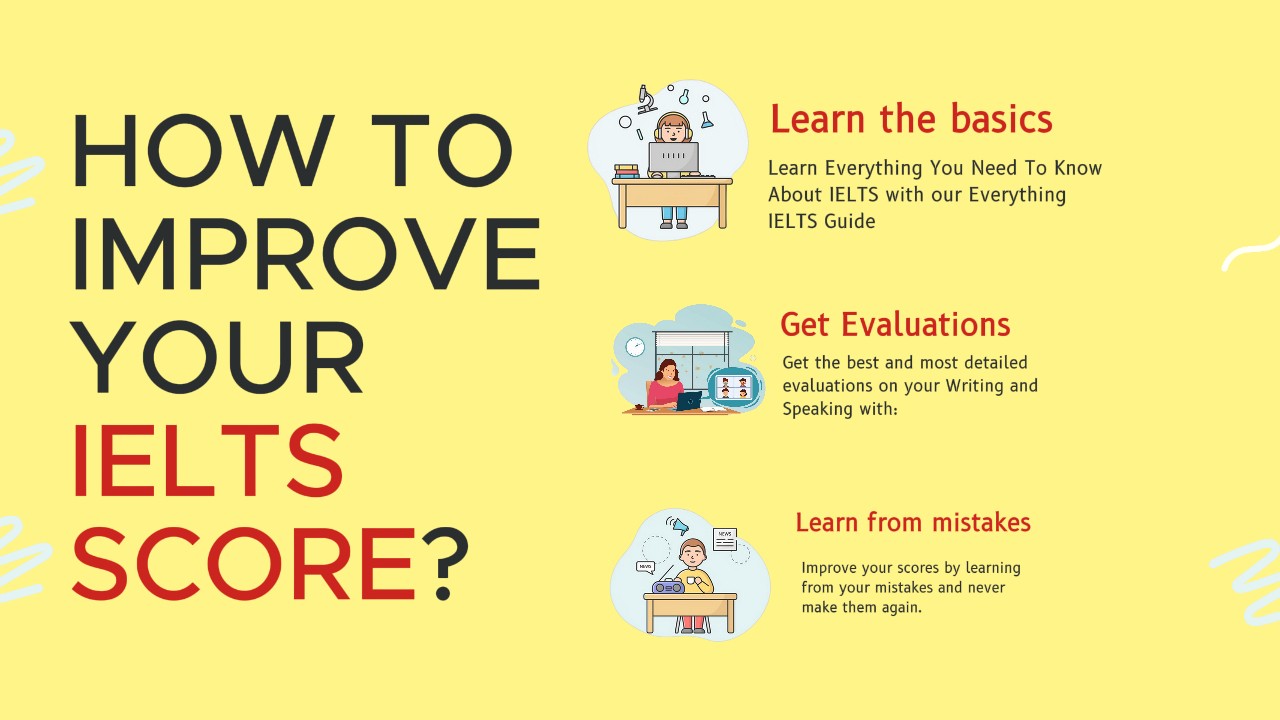
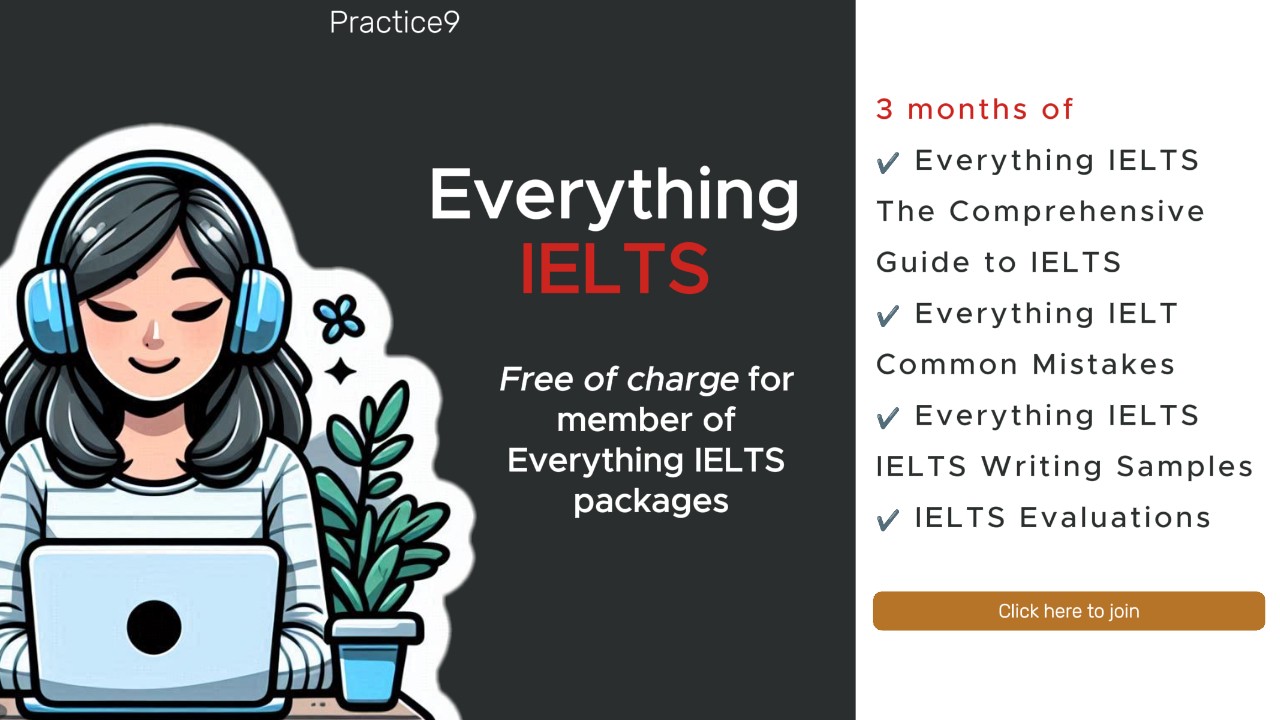
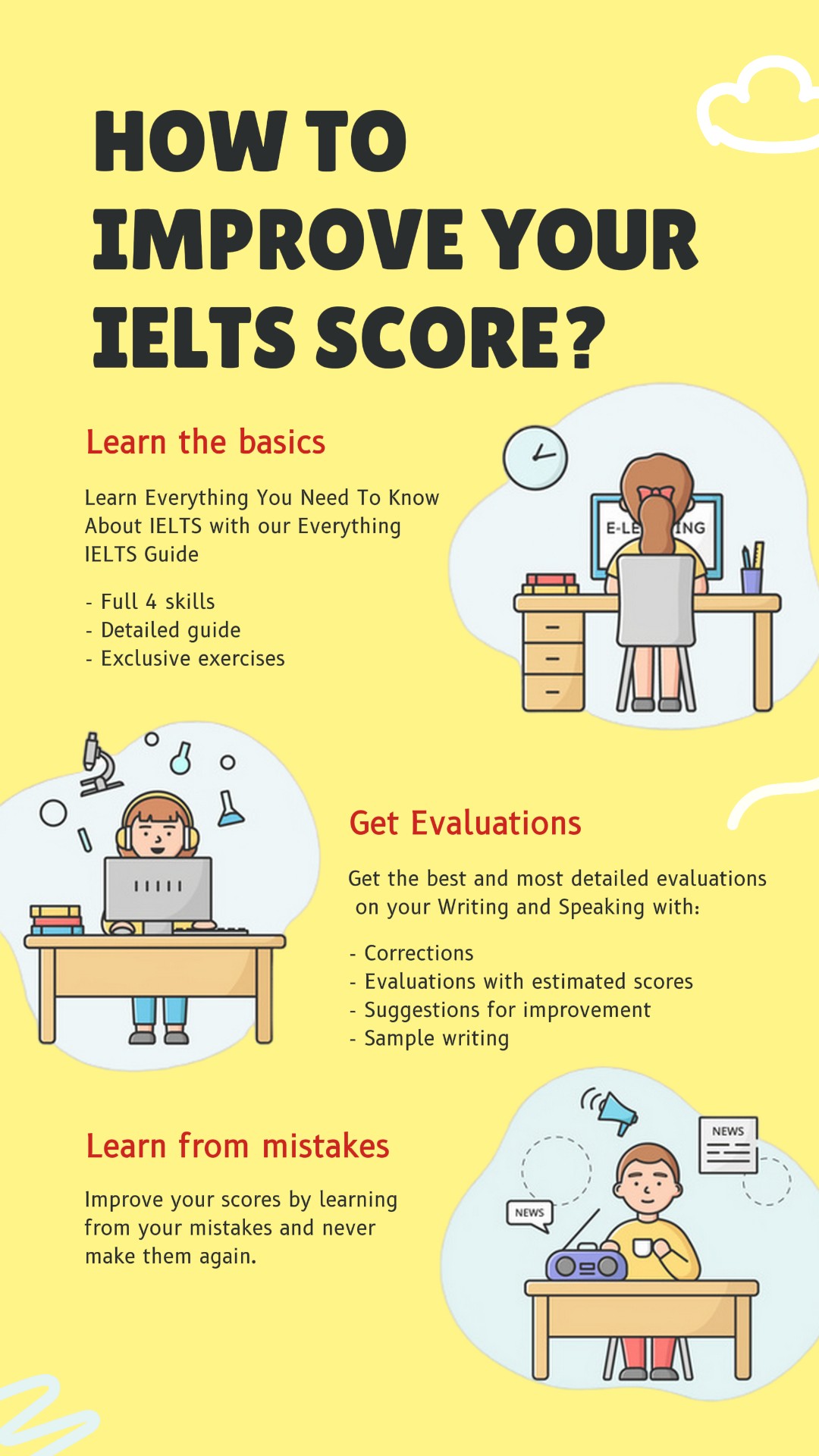
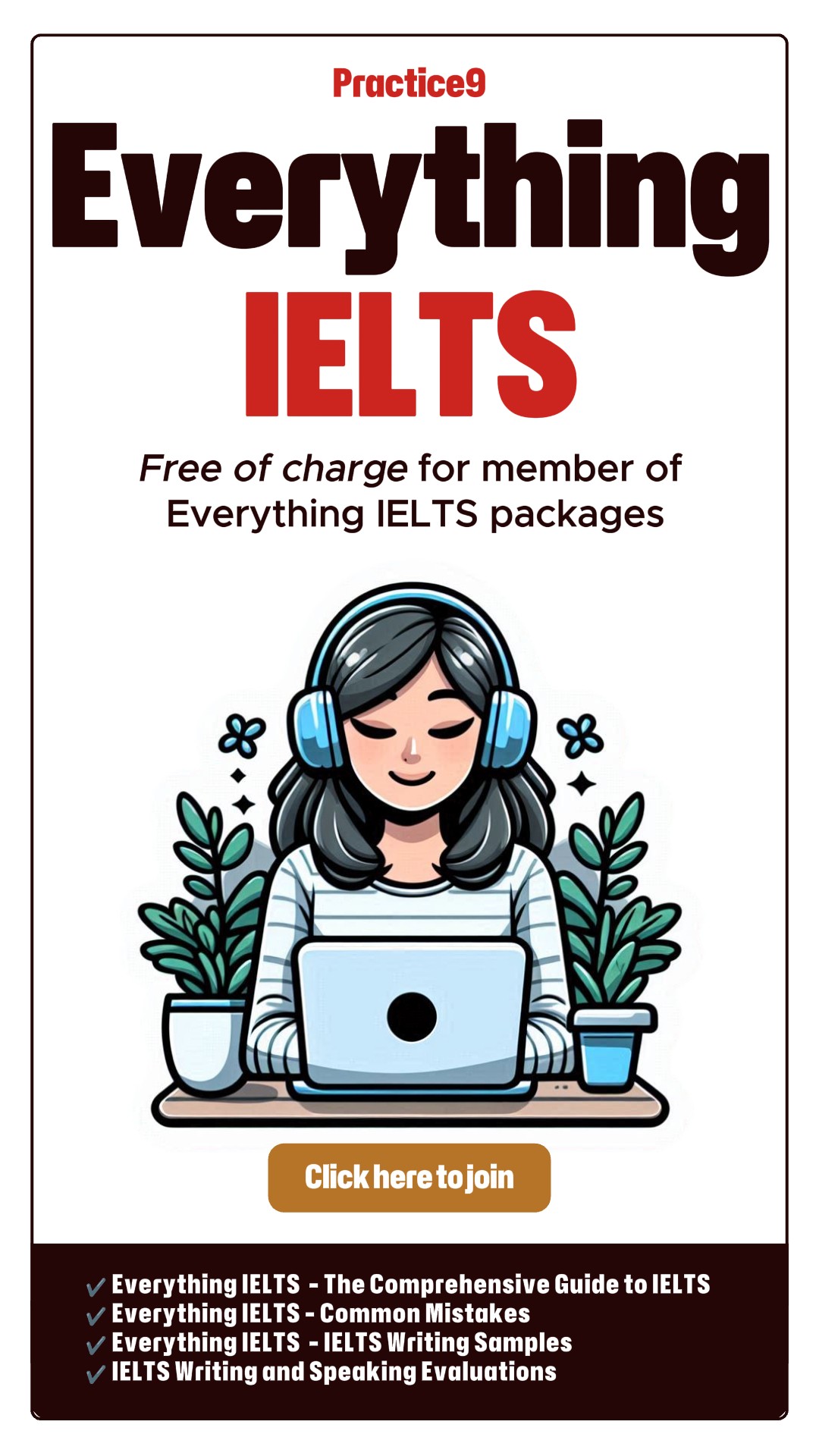

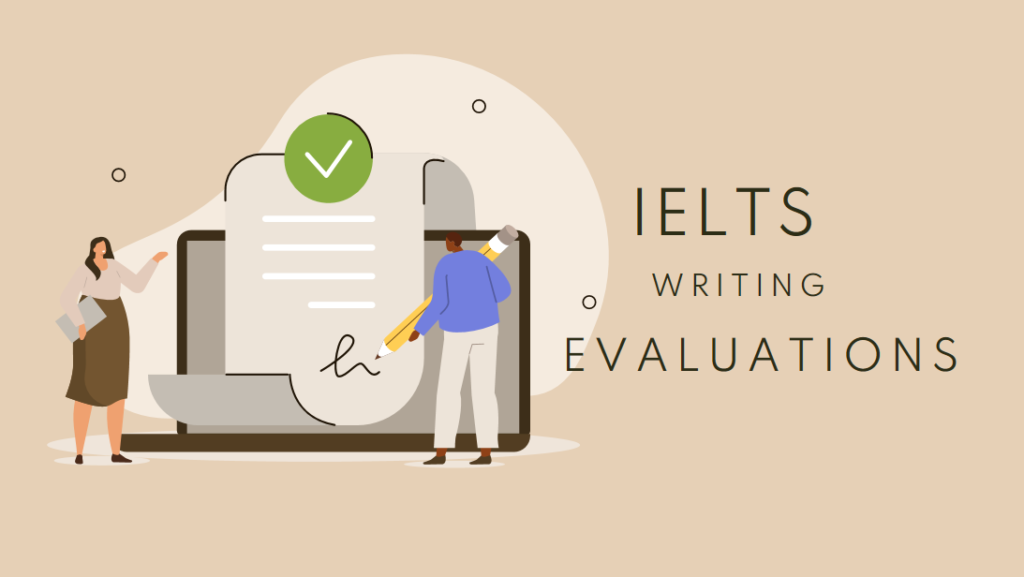
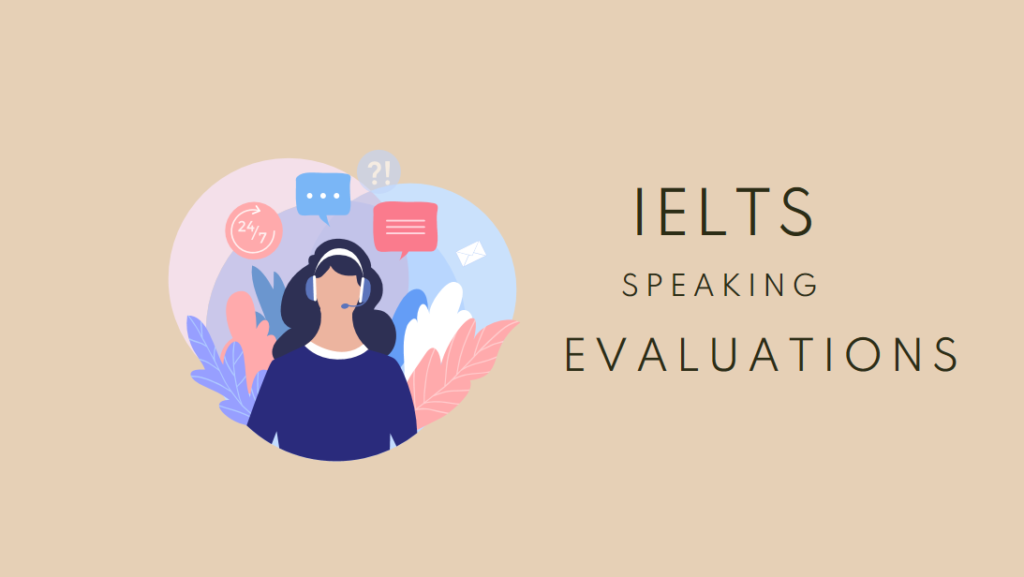





Responses